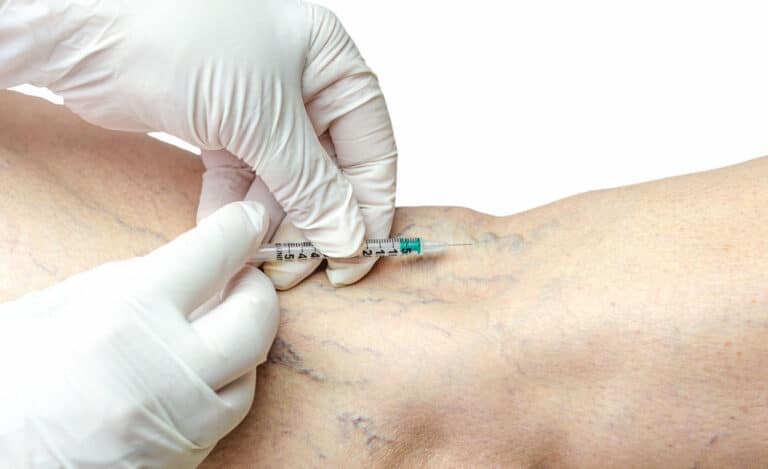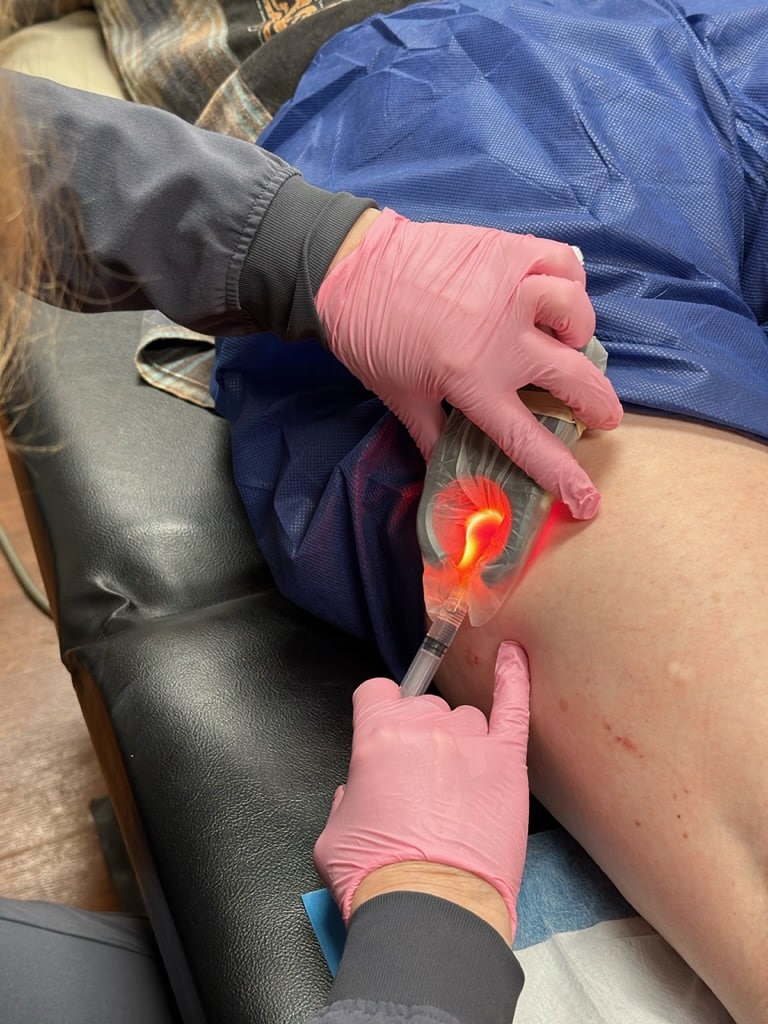Are you tired of hiding your legs or arms because of unsightly veins? Do you suffer from pain or discomfort due to vein problems? If so, you’ll be pleased to know that there are effective treatments available to help you say goodbye to vein problems for good. But before you jump in and book a treatment, it’s important to understand whether you’re a suitable candidate. That’s why we’ve compiled a list of the top factors that make you a great candidate for vein treatment. From the severity of your vein problems to your overall health and lifestyle habits, we’ll cover everything you need to know to make an informed decision about your treatment options. So, if you’re ready to take the first step towards beautiful, healthy-looking veins, keep reading to discover if you’re a great candidate for vein treatment.
Understanding the Causes of Vein Problems
Vein problems can be caused by a variety of factors, including genetics, age, pregnancy, obesity, and prolonged periods of standing or sitting. Varicose veins are the most common type of vein problem and occur when the valves in the veins don’t function properly, causing blood to pool and the veins to bulge. Spider veins, on the other hand, are smaller and closer to the surface of the skin. They can be caused by the same factors as varicose veins but are more of a cosmetic concern than a health issue.
It’s important to understand the underlying causes of your vein problems before seeking treatment. If your vein problems are caused by an underlying medical condition, such as deep vein thrombosis or peripheral artery disease, you may require additional tests or treatments before vein treatment can be considered. Your doctor or vein specialist can help you determine the cause of your vein problems and recommend the appropriate treatment.
Symptoms of Vein Problems
Symptoms of vein problems can vary depending on the type and severity of the problem. Varicose veins can cause pain, swelling, and aching in the legs, as well as a feeling of heaviness or fatigue. Spider veins are usually painless but can cause itching or burning sensations. Other symptoms of vein problems can include skin discoloration, ulcers, and bleeding.
If you’re experiencing any of these symptoms, it’s important to talk to your doctor or vein specialist. They can assess the severity of your vein problems and recommend the appropriate treatment.

Types of Vein Treatments Available
There are several types of vein treatments available, including:
- Sclerotherapy: This treatment involves injecting a solution into the affected veins, causing them to collapse and fade over time.
- Endovenous laser treatment (EVLT): This treatment uses laser energy to heat and seal off the affected veins.
- Radiofrequency ablation (RFA): This treatment uses radiofrequency energy to heat and seal off the affected veins.
- Ambulatory phlebectomy: This treatment involves removing the affected veins through small incisions in the skin.
Your doctor or vein specialist can recommend the best treatment for your specific needs and goals.
Who is a Good Candidate for Vein Treatment?
While most people with vein problems are good candidates for treatment, there are some factors that may make certain individuals better candidates than others. These factors include:
- The severity of your vein problems: If your vein problems are severe, you may be a better candidate for treatment than if they are mild or moderate.
- Your overall health: If you have underlying medical conditions that may complicate vein treatment, such as diabetes or heart disease, you may not be a good candidate for treatment.
- Your lifestyle habits: If you smoke or have a sedentary lifestyle, you may not be a good candidate for treatment. These factors can increase your risk of complications and may affect the success of your treatment.
- Your expectations: If you have realistic expectations for the outcome of your treatment and are committed to following your doctor’s post-treatment instructions, you may be a good candidate for vein treatment.
It’s important to discuss your individual circumstances with your doctor or vein specialist to determine if you’re a good candidate for treatment.
Factors That Make You a Great Candidate for Vein Treatment
In addition to the factors mentioned above, there are several other factors that can make you a great candidate for vein treatment. These include:
- Being in good overall health: If you’re in good health, you’re more likely to have a successful treatment and a faster recovery.
- Having a positive attitude: A positive attitude can go a long way in helping you achieve your treatment goals and maintain your vein health.
- Having realistic expectations: If you have realistic expectations for the outcome of your treatment, you’re more likely to be satisfied with the results.
- Having a support system: Having family or friends who can support you during your treatment and recovery can make the process much easier.
By considering these factors, you can increase your chances of having a successful vein treatment.
Preparing for Vein Treatment
Before your vein treatment, your doctor or vein specialist will give you specific instructions on how to prepare. This may include avoiding certain medications, wearing compression stockings, and arranging for someone to drive you home after the procedure.
It’s important to follow these instructions carefully to ensure the success of your treatment and minimize the risk of complications.

What to Expect During and After Vein Treatment
The specifics of your vein treatment will depend on the type of treatment you receive. Most treatments are performed on an outpatient basis and require little to no downtime.
During your treatment, you may feel some discomfort or pressure, but this should be manageable with local anesthesia or sedation. After your treatment, you may experience some bruising, swelling, or discomfort, but these symptoms should subside within a few days.
Your doctor or vein specialist will give you specific instructions on how to care for your treated veins and what activities to avoid during your recovery.
Risks and Complications of Vein Treatment
While vein treatment is generally safe and effective, there are some risks and complications associated with the procedure. These can include:
- Infection
- Bleeding
- Nerve damage
- Blood clots
- Skin discoloration
- Allergic reactions
It’s important to discuss these risks with your doctor or vein specialist before undergoing treatment. By following their instructions and reporting any unusual symptoms or complications, you can minimize your risk of these complications.
Conclusion: Taking the First Step Towards Vein Treatment
If you’re tired of hiding your legs or arms because of unsightly veins, or if you suffer from pain or discomfort due to vein problems, vein treatment may be a great option for you. By understanding the causes of your vein problems, the symptoms you’re experiencing, and the types of treatments available, you can make an informed decision about your treatment options.
Keep in mind that not everyone is a good candidate for vein treatment, and there are some risks and complications associated with the procedure. However, by considering the factors that make you a great candidate for treatment and following your doctor’s instructions carefully, you can increase your chances of having a successful treatment and enjoying beautiful, healthy-looking veins. So, take the first step towards vein treatment today and say goodbye to unsightly veins for good!

